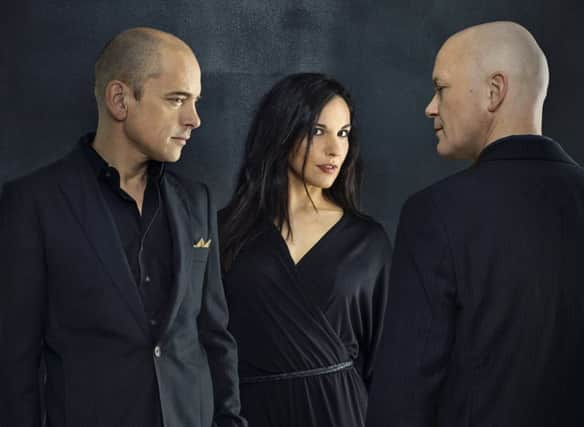Norwegian restraint meets Persian passion on Hymns and Visions


His latest album and associated tour, which comes to Edinburgh’s Queen’s Hall next Friday, features perhaps his most intense distillation yet.
Having nurtured a lifelong interest in his country’s church music, in What Was Said (ECM) the 45-year-old pianist has brought that Lutheran tradition into an unlikely-sounding, but ultimately beguiling partnership with the writing of 13th-century Persian Sufi poet Rumi. In the process he has stripped down instrumental resources to just himself on piano and regular drummer Jarle Vespestad, while recruiting the soft yet emotionally charged vocals of German-Afghan singer Simin Tander.
Advertisement
Hide AdAdvertisement
Hide AdThe result is a recording of potent delicacy, suffused with the yearning of both the beautifully stately Norwegian hymns and the rich sensuality of the Sufi poetry, which includes the title track, What Was Said to the Rose, intoned with taut emotion by Tander before the majestic waves of Gustavsen’s piano roll in. In an almost perverse switching, the Norwegian hymns are voiced mellifluously by Tander in Afghani Pashto, while Rumi’s songs come via the English translations of Coleman Barks. Tander explains that she first heard the hymns in instrumental renditions sent to her by Gustavsen. “Tord had heard me sing in Pashto and had the idea of maybe combining these two worlds, but from the moment I first listened to these melodies it felt very natural because they are hauntingly beautiful. I immediately felt deeply connected to them.”
Gustavsen had been reading Sufi poetry for years: “I had also played with Iranian musicians who are deeply rooted in their traditions and have poets like Rumi, Kabir and Khayyam as their national treasures, so that gave me part of the universe I was about to enter into.
“It became more and more clear to me that the parallels between Christian mysticism and Sufism are substantial, and it made so much sense to experience these universes together, opening myself in meditation and prayer with those metaphors and angles in the poems from the Sufi tradition, which were every bit as intense to me as from the Christian traditions.”
Another strand comes from Tander’s singing of the a starkly powerful poem of renunciation and renewal, I Refuse, by 20th-century American Kenneth Rexroth, a large influence on the Beat Poets and himself influenced by Rumi.
Gustavsen first adopted the piano-drums line-up out of necessity two years ago when his quartet’s bassist and saxophonist were prevented by a cancelled flight from participating in a live broadcast in Paris. “It was a very good accident,” says the pianist. “It turned out a great experience and gave me the idea to continue without the double bass for a while.”
The partnership between Gustavsen’s gently incisive keyboard work and Vespestad’s empathetic percussive tapestry was well established, but the album also sees the pianist adopt electronics, adding subtle background shimmers and shadows and resorting occasionally to synth bass. “I started experimenting a little and it surprised me how much [electronics] had to offer, he says. “On stage I use it a bit more boldly and loudly. But it’s always coming from the same contemplative point of departure.”
Two years ago, when I interviewed Gustavsen about his previous release, the instrumental Extended Circle, he described as ongoing “this passion for uniting raw emotion with elegance and an almost meditational type of playing [that] will never be finished” Does What Was Said take him further along that road? “It feels very deeply rooted in what I have done before, but also like a new universe, or a very natural next step.”
• Hymns and Visions, with Tord Gustavsen, Simin Tander and Jarle Vespestad, is at the Queen’s Hall, Edinburgh, on 4 March. See www.tordg.no/trio